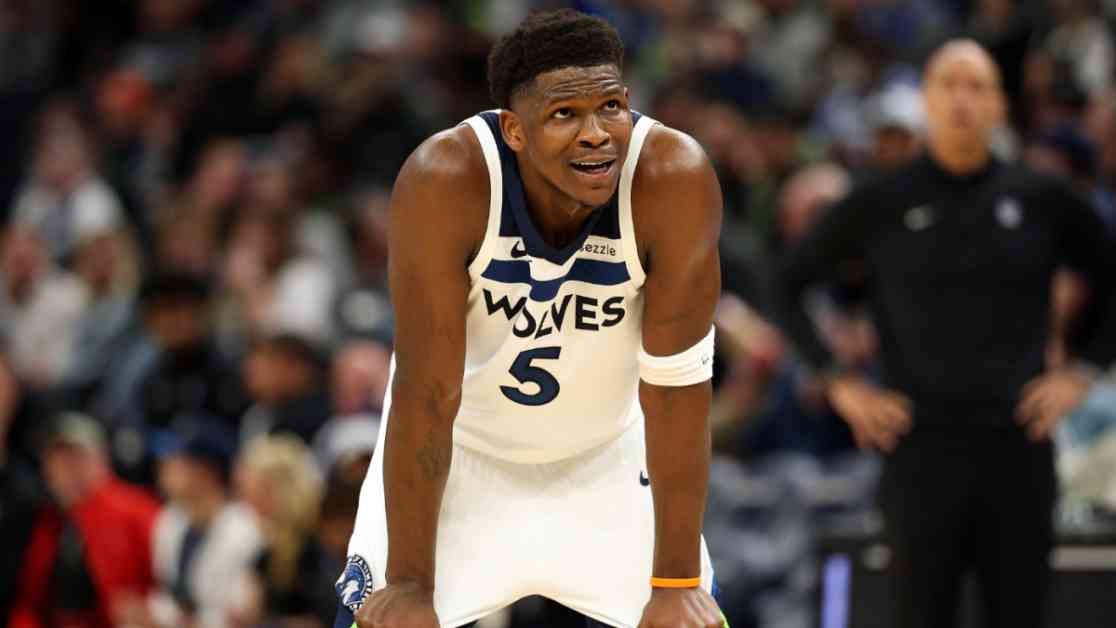The shocking trade that sent Luka Doncic to the Lakers left fans reeling in disbelief. The decision by Mavericks general manager Nico Harrison raised eyebrows and sparked heated debates across the NBA community. How could a 25-year-old superstar, fresh off an impressive Finals run, be traded away without his knowledge or consent? The mystery surrounding the trade has left many, including Minnesota Timberwolves star Anthony Edwards, scratching their heads in utter confusion.
Anthony Edwards, known for his candid and unfiltered opinions, expressed his disbelief at the trade, echoing the sentiments of many basketball enthusiasts. “At 25, they traded probably the best scorer in the NBA. And he didn’t know about it,” Edwards remarked after a game. “There’s a lot more digging somebody’s gotta do to find out why he got traded. Because you don’t just trade him at 25.”
As more details emerged about the trade, it became apparent that Harrison was determined to part ways with Doncic, despite the backlash and criticism from fans and experts alike. The decision to trade a player of Doncic’s caliber, with immense potential and talent, seemed unfathomable to many. The fact that Harrison did not actively seek out better offers or negotiate a more favorable deal only added to the perplexity surrounding the trade.
Even as the dust settled and the initial shock wore off, questions lingered about the true motivations behind the trade. Was it purely a strategic move to position the Mavericks for short-term success with Anthony Davis, or were there underlying factors at play? The idea of relinquishing a player of Doncic’s caliber, who had already proven himself as a dominant force in the league, left many wondering if the decision was shortsighted or driven by other considerations.
Unveiling the Maverick’s GM Perspective
In an interview following the trade, Harrison shared insights into his thought process and rationale behind the controversial decision. “Ten years from now, they’ll probably bury me,” Harrison quipped, acknowledging the gravity of the trade and the potential legacy it could leave behind. Despite the backlash and scrutiny, Harrison appeared resolute in his conviction that trading Doncic was the right move for the Mavericks.
While Harrison’s confidence in the trade may have raised eyebrows, it also shed light on the complex dynamics at play within NBA front offices. The pressure to make bold moves and navigate the ever-evolving landscape of professional basketball can sometimes lead to unpopular decisions that defy conventional wisdom. Harrison’s willingness to shoulder the burden of the trade, even in the face of widespread criticism, showcased his determination to chart a new course for the Mavericks.
Implications for the Future of NBA Trades
The ripple effects of the Doncic trade reverberated throughout the league, prompting players and executives to reevaluate the dynamics of player transactions and team-building strategies. The notion that no player, regardless of their status or accomplishments, is untouchable in today’s NBA landscape underscored the volatility and unpredictability of the trade market.
As Anthony Edwards humorously remarked, “When Luka got traded, anybody is able to get traded.” His playful jab at Minnesota’s front office highlighted the sense of uncertainty and vulnerability that permeated the league in the aftermath of the trade. The specter of unexpected moves and blockbuster deals loomed large, reminding players and fans alike of the ever-present reality of change in professional sports.
In conclusion, the trade that sent Luka Doncic to the Lakers marked a pivotal moment in NBA history, challenging conventional wisdom and sparking intense debates about the future of player transactions and team dynamics. While the decision may have been met with skepticism and disbelief, it also served as a stark reminder of the unpredictable nature of professional sports and the enduring legacy of bold, controversial moves in shaping the league’s landscape.








